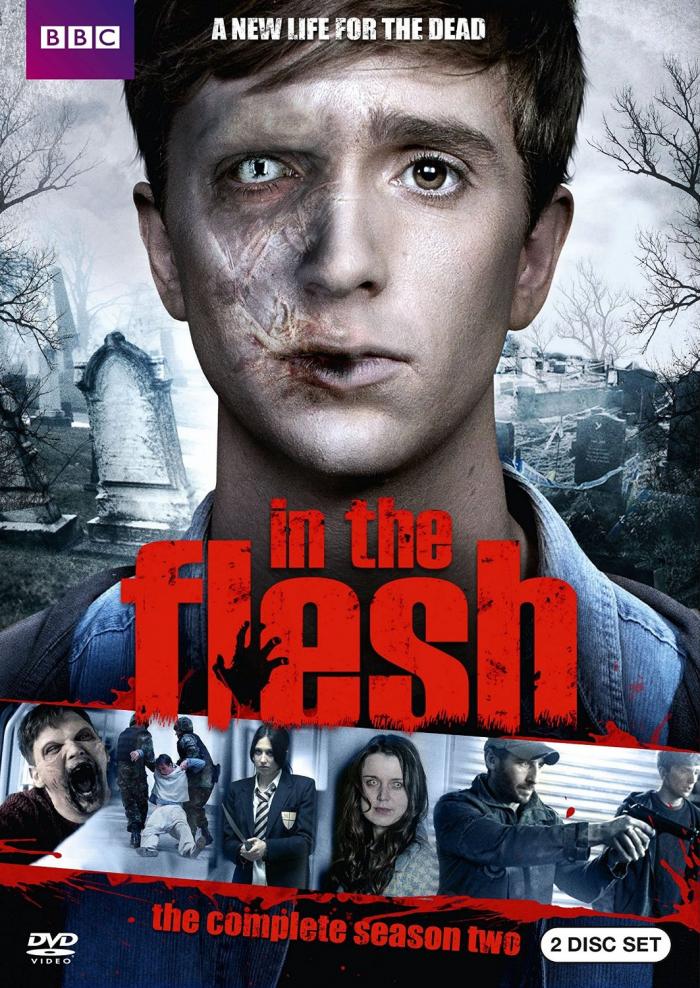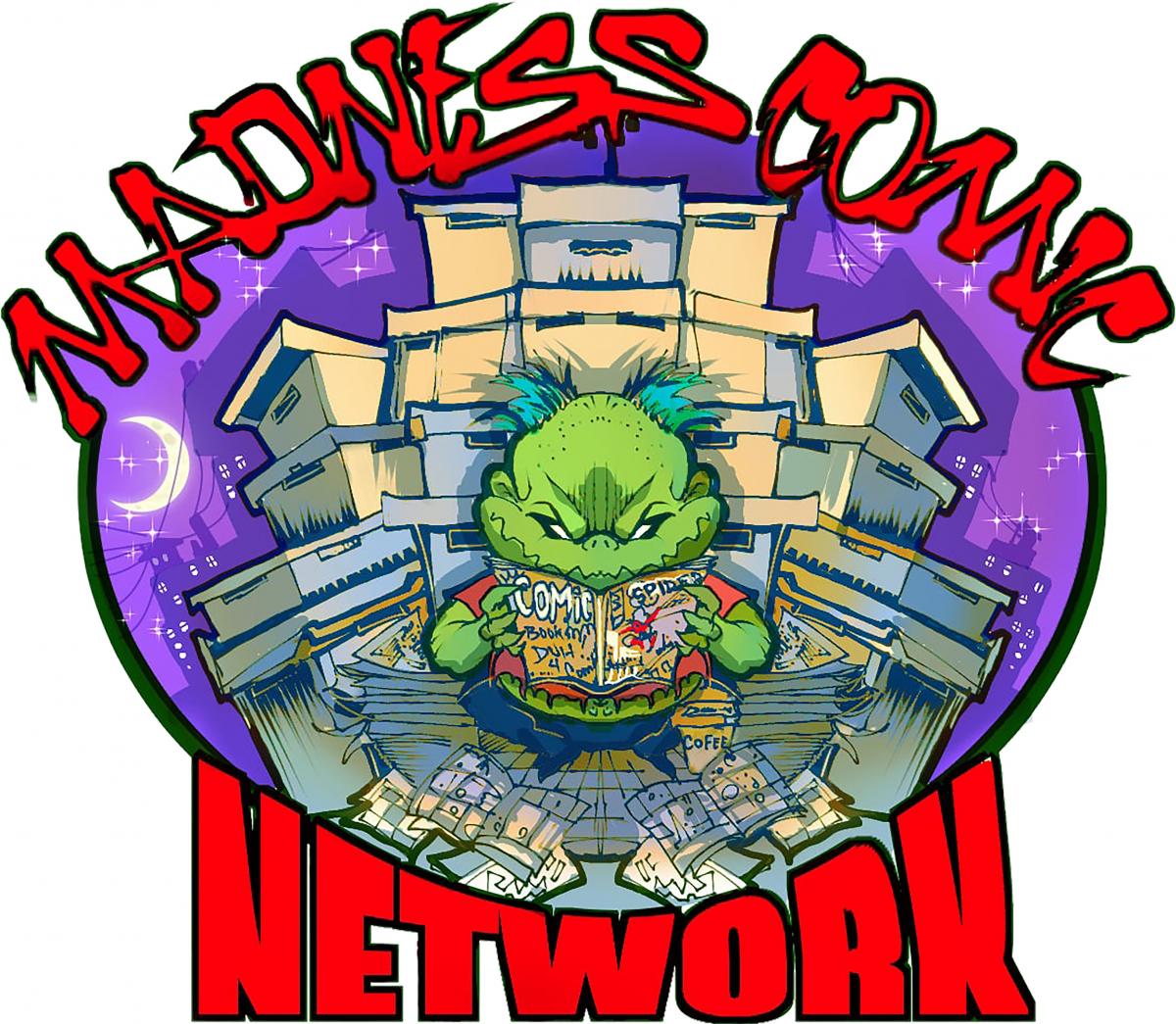Life Issues Drive BBC Zombie Series “In the Flesh”
FTC Statement: Reviewers are frequently provided by the publisher/production company with a copy of the material being reviewed.The opinions published are solely those of the respective reviewers and may not reflect the opinions of CriticalBlast.com or its management.
As an Amazon Associate, we earn from qualifying purchases. (This is a legal requirement, as apparently some sites advertise for Amazon for free. Yes, that's sarcasm.)

For those of you who, like me, were drawn into this different type of zombie series with season one, I’m pleased to season two does not lose any strides. Taking place roughly eighteen months after season one ends, IN THE FLESH continues to evolve into as good a main line drama series as I could want, with undead people in it.
Not to rehash all of season one, but suffice it to say that the premise of this series, set in a small town in England, revolves around an event sometime in the past when there was a rising of the dead from their graves. In true apocalyptic zombie fashion, they attacked and feasted on the living. Where this series so brilliantly takes another path is that here, instead of humans facing zombie annihilation, humans developed a cure called “Neurotriptyline.” Though not really a cure, per se, it enables the zombies to regain their human cognition. They no longer eat anything, they think and remember who they were before they died, and, so long as they routinely take their medication, they don’t revert back into their zombie selves. After counseling and treatment, they are released back into society.
In season two we see the prejudices, ignorance, and judgementalism that exist in regular life between races, ethnicities, etc. become apparent between the living and the “Partially Deceased Syndrome” sufferers. We have those who want to be normal as possible again and treated as such, and those on the living side that want no part of them, with each faction trying to garner support for their causes.
As you can see just because there are zombies here, real life issues persist.
Rest assured this is not at all like THE WALKING DEAD, which I also love, and it doesn’t pretend to be. One might say the doctors here did what TWD’s Eugene lied about, and takes the premise in a different direction. The similarity here is that people are people and good and bad exist everywhere -- and everyone is susceptible to human emotions whether you’re alive or dead or no longer dead but partially deceased.
The religious implications are not ignored, but they are not the main focus of the issues exactly. The radical PDS sufferers feel they are chosen because they are the first to rise, and the clergy/faithful of the town feel they are demons and that those who are the second to rise will be the “good ones.” That idea fuels the various story lines. The “ULA” (Undead Liberation Army) is led by Simon Monroe (Emmett J. Scanlon), a disciple of the “Undead Prophet” (whom we hear but rarely see, and then only in disguise) who himself is building his cult of followers by trying to convince the PDS sufferers that they are the special ones and that the living have no right to make them try and change.
The villagers are led by a newcomer to the town, a sort of local Prime Minister for the area (regretfully I don’t know or understand the various political stations that exist in England) by the name of Maxine Martine (Wunmi Mosaku). At first, it seems she wants to help the town deal with the new undead radicalism that is cropping up (some of the undead are foregoing their medicine and taking an illicit powder that reverts them almost instantly to their former selves so they can wreak havoc on the townspeople) by initiating a form of work release program where the PDS sufferers can do community service in order to earn credit to regain citizenship. At first this looks like she is just wanting to keep them all in line and in a virtual prison because she can’t stand them either. However, as the season progresses, we learn there are other reasons she has for wanting all of the records on those that have risen.
Maxine and Simone both have one thing in common here: they need to find the very first person to rise from their grave, as they believe that person must be killed at a particular time in order for the second rising to occur.
With that we get the main story for the season: Who is that first riser?
Season two is only six hour-long episodes, but the amount of storytelling put forth is so well written, with deep plots, that it all ties together without too many gaps in the story lines. What I like about this season is that it is not a lot of reflecting back to last season. There is some, but it’s done in the right amounts. Let’s just say that some of the people we may not like so much in the beginning of season two, we end up seeing as not so bad (or good) after all. This is great writing.
Woven in amongst all the larger issues are things that happen on the individual levels: between Kieren Walker (Luke Newberry) and his family, between him and his father, and between him and his sister Jem especially. Jem Walker’s (Harriet Cains) friends think she’s cool because she served in the Human Volunteer Force during the initial uprising and because she’s killed “Rotters” (as they call the zombies). But Jem’s fellow classmate Freddie Preston (Bryan Perry) is also a PDS sufferer; she likes him, and he wants to date her.
There are a lot of things happening with Amy (Emily Bevan) that are not happening with the other PDS sufferers, and no one can really explain what is happening; she is changing, but into what? Is she reverting back? Is she becoming more human? We are given subtle clues for both theories throughout the season. We even see the addition late in the season of two mysterious characters with a black car and a trunk full of interesting equipment.
Bevan is probably the finest actor in an all-around excellent cast. While all do a fabulous job of convincing me of who they are, Bevan just brings so much life (ha ha) to this role that you just can’t help but like her. You want the best for her. When she’s happy, you’re happy with her, and when she’s scared or sad, so are you. To me, that is what being a fine actor at the top of their game should be able to do. This whole cast was expertly put together and all of these actors, with this fine writing, are able to put forth a believable story to a situation that can’t happen -- but if it did, might very well happen this way.
There are many twists and turns in season two as well as a couple of rabbit trails we are led down which makes this the type of series you can talk and conjecture about at the water cooler, provided there are others cool enough to watch this show. I heartily encourage anyone who likes zombies and wants to see a show that breaks the mold to seek out season one, get acquainted with the characters and story, and then get season two. By the end, I’m confident that like me, you’ll be a fan and wish there were more episodes.


